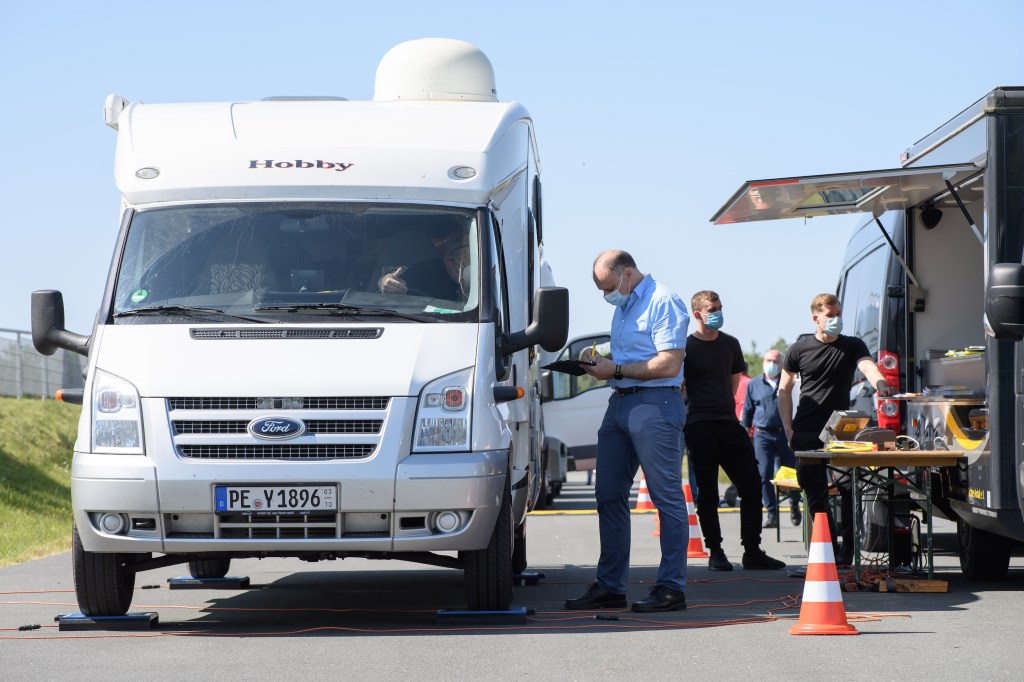
How Much Does It Cost to Weigh an RV?
For many American families, this is going to be the summer of RV and camper traveling. First-time road warriors are making their family RV purchases and learning the ins and outs of camper life. And there is certainly a lot to learn when you’re first getting started. For example, how do you go about managing the weight of your RV?
Do you know how to weigh your recreational vehicle? Before you hit the road, you should know the importance of calculating your RV’s weight. It’s equally helpful to know what requirements dictate laws for hauling and how much it costs to weigh your sweet ride.
You’d be surprised how heavy RVs really are

Campers and RVs vary in size, of course. But you’d be surprised just how heavy these vacation mobiles really are. The average RV weighs roughly 10,000 pounds. And that might make sense, considering the equipment, living amenities, and mechanics involved.
RV Blogger goes on to remind travelers that adding gear, people, and supplies adds up quickly, tacking on another 1,500 pounds in no time. And don’t forget the added weight of a full tank of gas too. These additions will need to be considered when it comes time to weigh your RV.
Weighing costs for RV travelers
If RV’ing is new to you, weighing might seem like an intimidating task, but it doesn’t have to be. The process will differ, depending on the style and size of your camper. M
otorhomes can usually be weighed in one measurement, while travel trailers and fifth-wheel variations might need two to three weigh-ins for the most accurate calculations. And using the Weigh My Truck app is a great tool to help you get started. Don’t forget to fill your RV up with gas before you weigh, too.
When it comes down to it, weighing your RV isn’t expensive. Usually, you can expect to pay between $11 and $13 for your first weigh-in attempt at a CAT scale. Each additional weigh-in attempt will only cost about $2 to $5. LearntoRV.com goes on to recommend doing each weigh at the same time not to thwart your results.
Why knowing the weight of your RV matters
If your RV’s Gross Combined Weight Rating (GCWR) is ultimately less than 10,000, you won’t likely have to worry about required stops at any weigh stations, according to Camper Report. But knowing your RVs weight is still critical for a number of reasons.
Some bridges and roadways are only designed to sustain certain weights, for example. Chances are, you’ll come across an unfamiliar path with a weight limit during your road trip adventures. Not knowing how much your RV weighs could pose serious travel risks.
And hitting the road with more weight than your RV can handle could cause serious accidents on the highway. Overloading your rig might cause problems during braking situations and when navigating hills. Some states have weight limits and weigh station stop mandates, as well, including Colorado and Oregon. And in other states, like New York, Kansas, and Wyoming, police officers can stop you along the way for random weight checks.
Whether your plans for hitting the open road include a class A, class B, class C, or a super C rig this summer, check your weight. You’ll want to ensure you travel safely within your intended weight ranges. And having your information on hand can help you save a little money when passing through states that require weigh-in pit stops. Check out the app and do your homework before you go. You’ll likely find weighing is an easy task that offers a little extra peace of mind while you travel with your RV.


